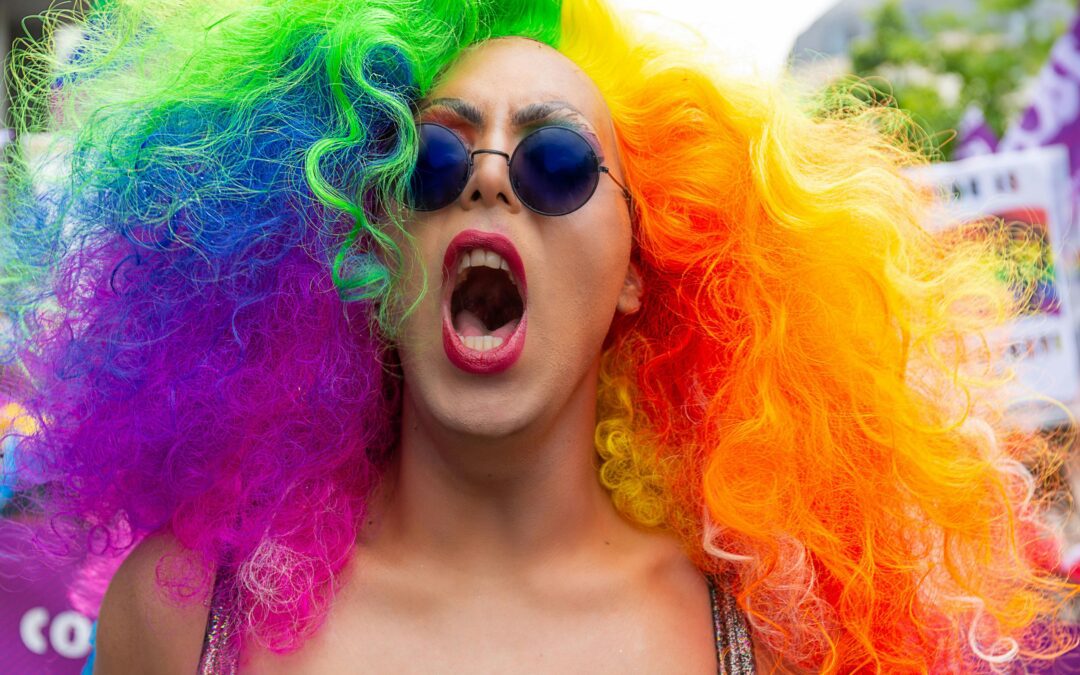I spent most of Pride Month ignoring my own advice.
I am a therapist, so I have to be a little professionally obsessed with the past. Whether I’m directing clients toward or away from it, helping them excavate it, or helping them bury it, my work is always in conversation with what came before.
Since January, the past feels more present than before. The Los Angeles Police Department is clashing with protesters. America launched an attack on Iran. The White House is denying life-saving care to LGBTQ+ individuals. Innocent people are being ripped from their communities to sit in detention centers. There are echoes of historical violence haunting every new email or social media post. And I am, unfortunately, not here to tell you that it will get better.
Throughout all of this, it has been my job to sit with people in their emotions and to offer a perspective they might not otherwise get. I can’t always reassure them. Instead, I sometimes recommend that my clients watch a documentary about AIDS. While 2025 is not 1985, the blueprint for a collective response to hostile administrations has been drawn up by generations before us. The grief we feel now is not new to the communities most affected by this administration.
Knowing all that, I’ve spent the year ignoring my own advice.
Watching a documentary about death and community rage when I was feeling helpless and furious about the safety of so many people close to me felt like too large a task. No matter how many documentaries I had already seen, and no matter how many moments of hope or inspiration I remembered, the reality was that I was overwhelmed. So I have spent the year ignoring the list of LGBTQ+ historical films and documentaries I had compiled to watch.
And now it’s June 2025.
Despite still feeling overwhelmed, I sat down and watched an AIDS documentary. I watched Vito.
Vito is a 2011 documentary about the film historian and activist Vito Russo and his fight for gay rights from 1979 until his death in 1990. While I watched this heavy story unfold, I saw people of all ages organizing, struggling, and fighting with each other. I also cried very, very hard.
When the crying was over, I felt something I hadn’t felt in months: motivation.
Watching Vito, I looked directly at the people who came before me. I heard their beliefs spoken aloud in their own voices, and I watched them walk side by side with the army of activists that collectively changed the trajectory of the future.
Video clips aren’t enough to change the world, but they brought me into communion with those who have made change and those who never got the chance. Each interview provided me time with these icons that bigots and death have taken away. They were grieving like I’m grieving. They were furious like I’m furious.
In the opening two minutes of the film, Russo says, “When I got involved in the gay movement, I was fighting for the generations that are gonna come after me. So that young gay people who are 14 and 15 won’t have to grow up the way we did.”
Vito didn’t know me, but he was talking about me. He may have been talking about you, your people, or your younger relatives.
I cannot tell you it will get better. I don’t know if it will. No one does.
But I can promise you that 30, 40, 50 years ago, people were fighting for you. If you’re feeling the weight of “unprecedented times,” I invite you to turn on your streaming service or head to the library and look at the faces of the past. They were here, they were queer, and they are telling us that the fight is about the future – especially when we cannot see it.
Need to talk to someone? Now is a good time to make a therapy appointment and get help managing your feelings in difficult times. Contact The Pincus Center if you’re in DC, MD, or VA and are looking for a gender affirming, LGBTQ+-inclusive, sex positive therapist.

